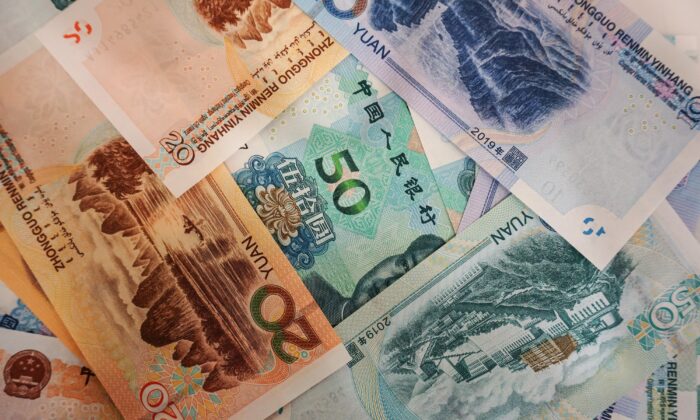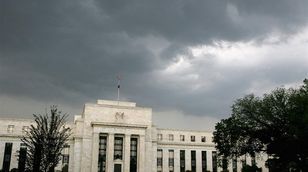Michael Ashley Schulman | Source | Founding Partner and Chief Investment Officer (CIO) at Running Point Capital ...

Michael Ashley Schulman
Michael Ashley Schulman, CFA—Chief Investment Officer and a Founding Partner of Running Point Capital Advisors, a multifamily office—is responsible for Running Point’s global macro outlook, research, investment strategies, PPLI & PPVA management, asset allocation, and impact and social assessments across public and private investments.
***Michael brings to his role over 20 years of institutional and high-net-worth portfolio management, research, trading, and wealth management experience across fixed-income, equity, hedge fund, real estate, and alternative investment classes. He has built quantitative and fundamental models, implemented robo-approaches and custom indices with tax-loss harvesting, and managed a fixed-income arbitrage hedge fund and a multi-asset fund of funds.
***Prior to Running Point, Michael was a partner, managing director, senior portfolio manager, and hedge fund manager at Hollencrest Capital Management; vice president, collateralized debt obligation (CDO)/quantitative analysis specialist at Deutsche Bank; manager at Accenture; director of strategy at Open Ratings (an MIT Startup); and a portfolio manager at Pacific Income Advisors.
***He has also effectively consulted for the World Federation of Exchanges in Paris, the Colombian Financial Exchange, and several high-tech firms, and has presented at forums and conferences in California, New York, Malaysia, Argentina, and Spain.
***Michael has an MBA from MIT Sloan, a CFA designation, and a BA in Economics from UC Berkeley.
***Within the community, Michael is a Board member of The Bridge Permanent Selection Committee which selects top female emerging managers in venture capital to be matched with investors. Additionally, Michael served on the advisory board of a San Diego based impact fund and is a past president and board member of the CFA Society of Orange County. In his spare time, he enjoys art and adventure travel, including kayaking the Stockholm archipelago and mountain biking in Mongolia to raise funds for underprivileged Mongolian children.
***You can follow him at https://rbtrage.medium.com/ and at https://www.linkedin.com/in/rbtrage/.
-

Running Point Capital Advisors (https://runningpointcapital.com/)
Founding Partner and Chief Investment Officer (CIO)
started Oct 2019 -
Hollencrest Capital Management (http://www.hollencrest.com)
Managing Director - Partner, Senior Portfolio Manager - Consultant
Jun 2005 – Jun 2019 -
Double Eagle Partners
Hedge Fund and Multi-strategy Fund of Funds Manager
Jun 2005 – Jun 2019
-
Battered Zimbabwe Currency Falls Past 20,000 Per Dollar in Official Trade
I was quoted by Bloomberg News in an article regarding whether Zimbabwe is about to abandon its current currency (ZWL) for a new one backed by gold, how feasible it is, and our general outlook for the currency.
Article -
Is China Exporting Deflation to the World?
I was quoted by The Epoch Times in an article — by Indrajit Basu, “Is China Exporting Deflation to the World?” — regarding the global effects from China’s slowing economy and especially its ramifications for the U.S.. As the economy slows and official data point to continued declines in consumer prices, flat import growth, and sluggish domestic demand—all indicating strong deflationary pressure in the world’s second-largest economy—China is not only an outlier as the only major economy facing increased deflation risk rather than inflation pressure.
Article -
شولمان: البيانات الاقتصادية السابقة تؤكد أن تخفيض الفائدة لن يتكرر كثيرا - اقتصاد الشرق U.S. EQUITY OUTLOOK
البيانات الاقتصادية تشير لعدد أقل من مرات خفض الفائدة.. الاقتصاد يظل قويا والبطالة منخفضة والتضخم فوق 3% وننتظر بيانات التضخم الصادرة غدا.. السوق ربما فوق قيمته العادلة I was interviewed by 3x award-winning TV journalist and business morning news anchor Cyba Audi of Asharq Business اقتصاد الشرق News with Bloomberg — in a Thursday morning live TV segment — regarding our outlook on equities and the U.S. stock market.
Video
-
Moody's Downgrade: A Symbolic Slap, Not a Systemic Shock
Michael says Moody's downgrade to AA-plus is "a symbolic slap, not a systemic shock." Treasury yields barely moved, and the dollar remains strong. He emphasizes, "watch Congress, not Moody’s!" Treasuries continue as a global staple, and the downgrade is a fiscal reminder rather than a crisis. -
The Quirky History Behind Gas Prices Ending in 9/10 of a Cent
Michael reveals that the U.S. legally recognizes a mill (1/10¢), a practice dating back to 1919. He notes, "This fractional pricing persisted through the Great Depression and became a marketing tactic." Today, the 9/10 fraction remains due to its psychological appeal and its role in maintaining station profits. -
Celebrity Premium Fades: J Lo and Ben Affleck's Mansion Faces Market Realities
Michael notes, “The 'celebrity premium' is evaporating as buyers prioritize investment over fame.” The saturated market and mansion tax pressure sellers like Lopez and Affleck. With a potential $3.9 million tax on a $60 million sale, they face a $5 to $7 million loss. The urgency of a high-profile divorce complicates maximizing returns.
-
The postponement has caused anxiety locally, but most outside investors have already abandoned Zimbabwe’s currency, said Michael Ashley Schulman, chief investment officer and partner at Running Point Capital Advisors.
“The major concern for people in the country is that if Zimbabwe does switch to a gold backed currency, they will do it at an exchange rate favorable to the new currency and unfavorable to citizens, thus leading to a further last minute devaluation,” Schulman said. “In other words, if you have Zimbabwean dollars, you want to spend them as quickly as possible on something tangible.”
Having a gold backed currency won’t necessarily stop future devaluations from occurring, Schulman added. “The government can still print money and change its currency ratios.”
Bloomberg News, March 22, 2024 -
One strategy China employs to combat its flagging economy is selling off its vast surplus of manufactured products at reduced rates.
“Certainly, companies like TEMU and Shein are gaining market share and undercutting the dollar stores and other retailers in the U.S.,” Michael Ashley Schulman, chief investment officer at California-based Running Point Capital, told The Epoch Times.
According to Mr. Schulman, while the impact of China’s exported deflation has somewhat reduced “with the [post-pandemic] economic decoupling” in the U.S., “that could drastically change if BYD, or other Chinese electric vehicle makers start selling their vehicles in the U.S.”
Experts believe that given China’s global leadership in manufacturing sectors such as batteries, solar, drug intermediaries, and many more products, whenever the country’s manufacturers compete head-on, middle-market companies globally face margin pressure and sharp price drops for some inputs.
“We watch the currency exchange rate between China and the U.S. carefully to understand and measure this effect,” Mr. Schulman added.
“One of the main things on our radar is if Donald Trump wins the presidential election in November, he may raise tariffs further on Chinese imports, thus lessening their deflationary effect,” said Mr. Schulman.
Internally, to fight domestic deflation or disinflation, Beijing needs to boost consumer confidence in order to increase consumer spending across all income levels, he added.
The Epoch Times, March 1, 2024 -
“China’s crisis-mired property market remains a key concern, with weak sales, default risks, and a consensus among major financial institutions projecting a continued slump in 2024. Despite government efforts, the pessimistic outlook signals ongoing economic challenges,” Michael Ashley Schulman, chief investment officer at California-based Running Point Capital….He adds that while recent initiatives provided short-term respite, investors are nonetheless concerned about long-term economic prospects. Six months of straight outflows, “totaling $30 billion in foreign institutional sales of mainland Chinese equities,” suggest ongoing worries.
The Epoch Times, Feb 27, 2024



